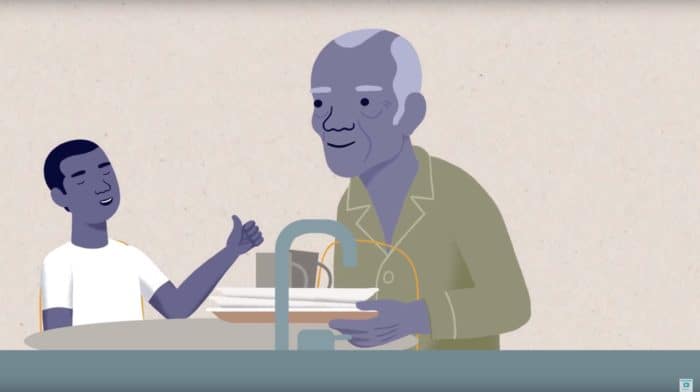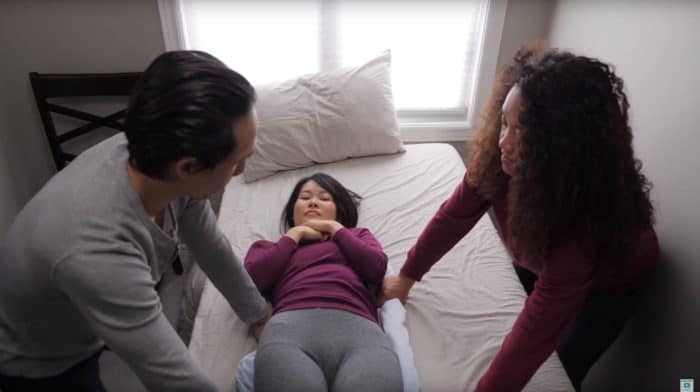How Positive Thinking Can Improve Caregiving
As a caregiver, you have to be realistic about what can and can’t be controlled. Your attitude can be the biggest barrier to taking care of yourself and doing the best job for your loved one. You doubt yourself and think negative thoughts about your caregiving skills. Like, “I’m such a bad caregiver,” or “this is too much for me to handle.” If left unchecked, these negative feelings can build up in your mind and, over time, you may begin to believe them. In this video, we’ll give you some tips on how to avoid negative thinking, and teach you an exercise to help maintain a stronger state of mind.
As a caregiver, you’ll have days when you doubt yourself and think negative thoughts about your caregiving skills. Like, “I’m such a bad caregiver,” or “this is too much for me to handle.” If left unchecked, these negative feelings can build up in your mind and, over time, you may begin to believe them.
In this video, we’ll give you some tips on how to avoid negative thinking, and teach you an exercise to help maintain a stronger state of mind.
Your brain records and holds on to the thoughts you repeat to yourself, so one of the best things you can do to prevent negative thinking is to start using positive affirmations.
Positive affirmations are statements that you repeat out loud to yourself several times a day. They can help provide encouragement, inspiration, and optimism when your spirits are low.
You might be surprised by how quickly you can improve your mood just by saying a few nice things about yourself every day.
Here are a few basic tips on how to use positive affirmations:
Repetition is key. The connections a positive affirmation creates in your brain get stronger every time you say it out loud. Try to repeat your daily affirmations at least five times in a row, and do this a few times daily.
Always use the present tense. Your brain responds more to what’s happening in the present, so tell yourself things like “I AM a great caregiver” instead of “I will be” or “I could be.”
Only use positive words. Avoid saying things like “can’t,” “don’t,” “won’t,” or “hate.”
Phrase your statements as though they are already true. It’s more powerful to say “I am doing my best” than “I’m trying to do my best”.
Now, here’s a quick exercise you can use to create your own positive affirmations.
First, start by thinking about the qualities you’d like to improve. Use a piece of paper or a writing application on your phone to jot down all of your negative beliefs and feelings about yourself. Prompts like “I’m not,” “I can’t,” or “I hate” may help.
After you’ve written down your negative thoughts, read them over and choose a few that stand out or cause you the most personal discomfort.
For each of these negative thoughts, write down a strong, empowering statement that says the opposite. Examples of this are things like “I’m a good caregiver, I can do this,” “I’m free from anger, I’m at peace,” and “I’m learning lots of new skills.”
When you’ve written out your positive affirmations, say them out loud to yourself. As you speak the words, imagine them as completely true.
Feel the positive meaning of the words as you repeat them. After saying one of your affirmations, take a long, deep breath and tell yourself that these words really are true.
Keep your list of affirmations handy in your wallet or on your phone, and try to say them all at least a few times per day.
Using an exercise like this one can help to break you out of negative thought patterns and improve your state of mind. It will also increase your ability to cope with stress, and give you more confidence in your day-to-day caregiving abilities.
So, next time you’re feeling sad or uncertain about yourself, give positive affirmations a try!
Be sure to subscribe and watch our other videos for additional caregiver support and resources.






